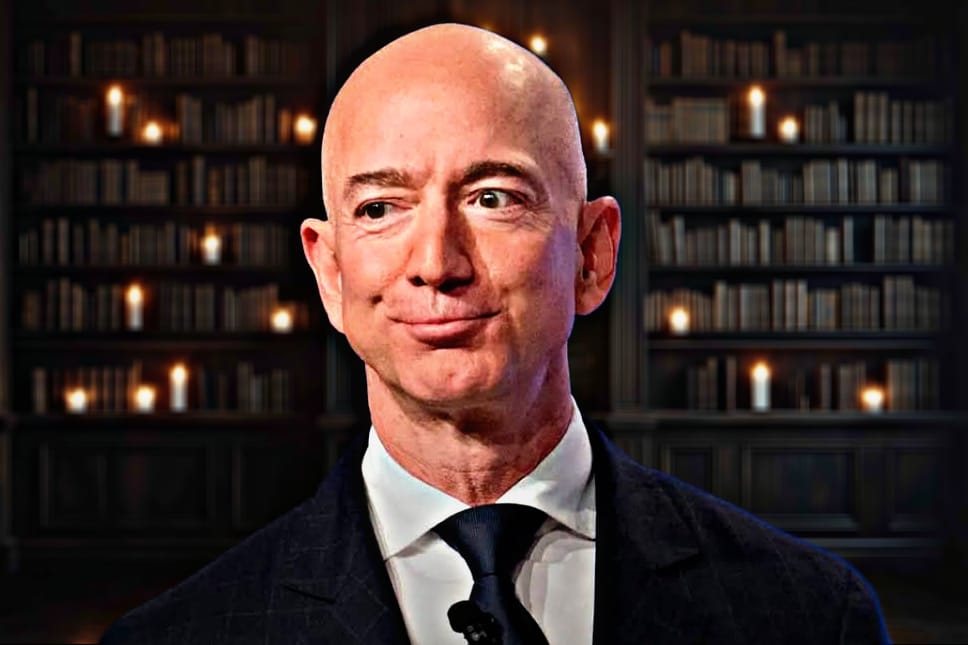Jeff Bezos, the founder and former CEO of Amazon, is one of the most recognized figures in the global business world. Through his leadership, Amazon has transformed from a small online bookstore into one of the world’s largest and most influential companies. With a passion for innovation, a knack for disruption, and an unwavering focus on customer satisfaction, Amazon CEO Jeff Bezos has fundamentally reshaped the way the world shops, consumes media, and approaches technology.
In this article, we will explore Jeff Bezos‘s rise to prominence, the evolution of Amazon, and his lasting impact on the tech industry and beyond. Additionally, we will analyze his leadership style, key achievements, and the lessons that aspiring entrepreneurs and business leaders can learn from his journey.
Early Life and Background of Amazon CEO Jeff Bezos
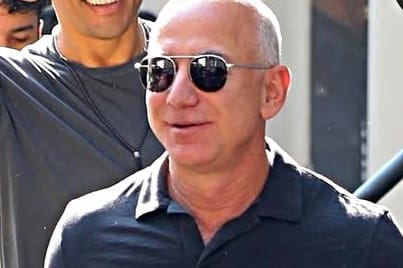
Jeffrey Preston Bezos was born on January 12, 1964, in Albuquerque, New Mexico, to Jacklyn and Ted Jorgensen. His mother was a teenager when she gave birth to him, and his father, Ted, left the family when Jeff was very young. When Jeff was four, his mother remarried Miguel Bezos, a Cuban immigrant who legally adopted Jeff, giving him the surname Bezos.
Bezos showed an early interest in science and technology, frequently tinkering with electronics and creating mechanical devices. His academic excellence and curiosity led him to attend Princeton University, where he graduated summa cum laude in 1986 with degrees in Electrical Engineering and Computer Science. During his time at Princeton, Amazon CEO Jeff Bezos demonstrated a natural aptitude for both technology and business, often thinking about how to use emerging technology to create real-world solutions.
The Birth of Amazon: From a Garage Startup to an E-Commerce Giant
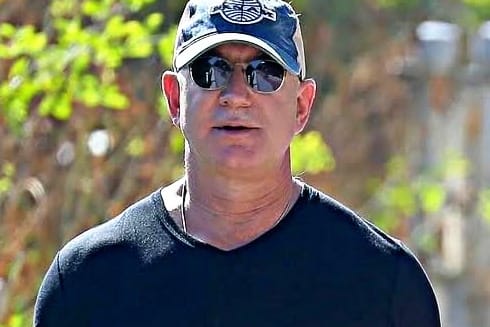
The story of Amazon CEO Jeff Bezos and his journey to create Amazon is a quintessential example of entrepreneurial vision and persistence. In the early 1990s, Bezos was working as a senior vice president at an investment bank called D. E. Shaw & Co. While successful in his career, Bezos was growing increasingly restless and saw the internet as a tool with vast, untapped potential.
In 1994, Bezos came up with the idea of starting an online bookstore. He was drawn to the idea of using the internet to reach customers who could access a vast selection of books without leaving their homes. With this concept in mind, Bezos left his well-paying job at D. E. Shaw and moved to Seattle to begin building his vision.
He initially worked out of his garage, coding the website himself and assembling a small team. The company was originally called Cadabra, but Bezos later changed the name to Amazon, after the vast Amazon River, symbolizing the company’s ambition to become the largest retailer in the world. The choice of the name was also strategic because “Amazon” would appear at the top of alphabetical lists, giving it a distinct competitive advantage.
Amazon officially launched in 1995 as an online bookstore, and it was a hit right from the start. In the first two months of operation, Amazon CEO Jeff Bezos new company sold books to customers in all 50 U.S. states and over 45 countries. This early success, combined with Bezos’s relentless pursuit of customer satisfaction, allowed Amazon to quickly scale beyond books, adding new categories like electronics, clothing, and toys.
Amazon’s Expansions and Jeff Bezos’ Leadership Style
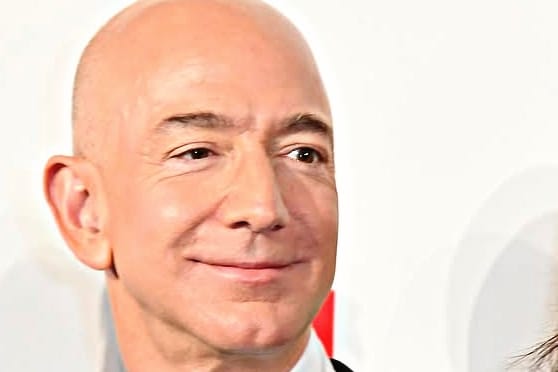
Under the leadership of Amazon CEO Jeff Bezos, the company went through a period of rapid expansion. Bezos’s vision was not limited to simply being a bookstore; he wanted Amazon to be the world’s largest online marketplace, selling anything and everything.
Amazon CEO Jeff Bezos long-term thinking was one of his defining characteristics as a leader. While many traditional businesses focused on short-term profits, Bezos adopted a strategy of reinvesting Amazon’s profits back into the business to fuel further growth. His commitment to long-term success over short-term gains is exemplified by the company’s approach to pricing, where Amazon initially sold items at razor-thin margins to attract customers and build its market share. Amazon CEO Jeff Bezos understood that if Amazon could dominate the online marketplace, the revenue potential in the future would be enormous.
In the early 2000s, Amazon expanded into a variety of different sectors, diversifying far beyond books.
- Amazon Web Services (AWS): In 2002, Bezos made the decision to branch out into cloud computing with the launch of Amazon Web Services (AWS). This move was initially met with skepticism, but it soon became a game-changer. AWS allowed companies to host their websites and services on Amazon’s servers, cutting their IT costs significantly. Today, AWS is a multibillion-dollar division of Amazon, contributing a large percentage of the company’s overall profits.
- Amazon Prime: In 2005, Amazon launched Amazon Prime, a subscription service that offered free two-day shipping, among other perks. Prime became an incredibly successful product for Amazon, with millions of members globally, and has expanded to include video streaming, music, and other services.
- Amazon Echo and Alexa: In 2014, Amazon introduced the Amazon Echo smart speaker with its voice-activated assistant Alexa. This innovation propelled Amazon into the rapidly growing smart home market. The success of Alexa is one of the major reasons why Amazon is now seen as a leader in artificial intelligence and voice computing.
- Amazon Acquisitions: Bezos’s Amazon was also aggressive in acquiring other companies to expand its portfolio. Some notable acquisitions include Whole Foods (in 2017) to enter the grocery market, Zappos (2009) to expand into footwear, and Ring (2018) to strengthen its presence in home security.
Throughout these developments, Amazon CEO Jeff Bezos remained laser-focused on innovation, ensuring that Amazon not only kept its competitive edge but also fundamentally changed industries along the way.
Amazon’s Disruption of Traditional Retail and Its Impact on the Global Economy
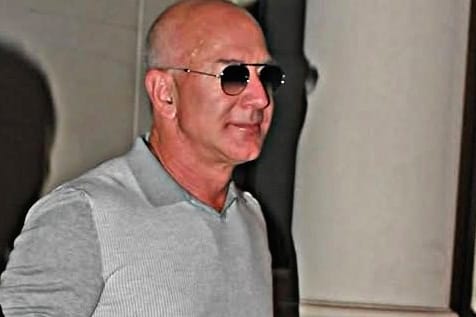
One of the most profound impacts of Amazon CEO Jeff Bezos leadership has been the disruption of traditional retail. By creating a seamless shopping experience, combining fast shipping, competitive pricing, and a vast product catalog, Amazon fundamentally changed consumer behavior.
- Online Shopping Revolution: Amazon’s rise marked the beginning of the shift from brick-and-mortar stores to online retail. In the U.S., Amazon’s success has had a significant impact on traditional department stores, shopping malls, and chain retailers, many of whom have struggled to compete with the efficiency and convenience that Amazon offers.
- Global Supply Chain Overhaul: Amazon’s logistical prowess is another area where Amazon CEO Jeff Bezos revolutionized the global economy. With its vast network of fulfillment centers, warehouses, and delivery systems, Amazon set new standards for how goods are stored, processed, and shipped. The company’s innovations in supply chain management have been adopted by companies worldwide.
- Digital Media and Entertainment: Bezos’s acquisition of The Washington Post in 2013 showed his interest in the media industry, but it was the launch of Amazon Studios and the Amazon Prime Video streaming service that turned Amazon into a major player in entertainment. Amazon has invested heavily in original content, winning multiple Emmy Awards and becoming a direct competitor to platforms like Netflix and Hulu.
Jeff Bezos’ Leadership Style: Customer Obsession and Long-Term Thinking
Amazon CEO Jeff Bezos has often spoken about the principles that have guided Amazon’s growth. One of his core philosophies is “customer obsession,” which refers to the idea that Amazon’s success depends on its ability to continually meet the needs of its customers. This obsession with customers is one reason why Amazon has consistently pushed the envelope in terms of innovation. Whether it’s one-click ordering, same-day delivery, or customer reviews, Amazon’s success can be attributed to Bezos’s dedication to improving the customer experience.
Amazon CEO Jeff Bezos is also known for his long-term thinking. He has famously said that Amazon is willing to make decisions that may not pay off for five or even ten years if they believe it will benefit customers in the long run. This willingness to invest heavily in the future has allowed Amazon to continually grow and diversify its offerings.
Another notable aspect of Bezos’s leadership style is his ability to embrace failure. Bezos has often said that Amazon’s failures are just as important as its successes, as they provide valuable lessons for the company. By fostering a culture of experimentation and risk-taking, Bezos encouraged his team to innovate without fear of failure.
Jeff Bezos’ Transition from CEO to Executive Chairman
In July 2021, Amazon CEO Jeff Bezos announced that he would step down as CEO of Amazon, transitioning into the role of Executive Chairman of the company. This move was part of a broader strategy to focus on other ventures, including his space exploration company Blue Origin, his media endeavors with The Washington Post, and various philanthropic projects.
Despite stepping down as CEO, Bezos remains deeply involved in Amazon’s direction and continues to play a key role in shaping the company’s future. Andy Jassy, the former CEO of AWS, took over as Amazon’s new CEO, but Bezos’s legacy as the driving force behind Amazon’s incredible growth remains undeniable.
Philanthropy and Future Endeavors
As of now, Amazon CEO Jeff Bezos is also focusing on his philanthropic efforts through the Bezos Earth Fund and other charitable ventures. His commitment to addressing climate change and supporting innovation in sustainability demonstrates his desire to leave a positive mark on the world beyond Amazon. In addition, he has made significant investments in Blue Origin, with the goal of making space travel more accessible and sustainable.
Bezos’s philanthropic initiatives, combined with his leadership of Amazon and his ventures in space exploration, continue to demonstrate his commitment to long-term thinking and ambitious goals.
Conclusion: The Legacy of Amazon CEO Jeff Bezos
The legacy of Amazon CEO Jeff Bezos is one of disruption, innovation, and relentless pursuit of customer satisfaction. Under his leadership, Amazon became not just an e-commerce platform but a global leader in technology, entertainment, logistics, and cloud computing. Bezos’s visionary approach to business, coupled with his willingness to take risks and prioritize long-term success over short-term profits, has set a new standard for what it means to lead a company in the modern age.
Bezos’s impact extends beyond Amazon, as his ventures into space exploration, media, and philanthropy ensure that his influence will be felt for decades to come. For entrepreneurs and business leaders, Amazon CEO Jeff Bezos remains a powerful example of what can be achieved when innovation, customer obsession, and bold thinking intersect.

